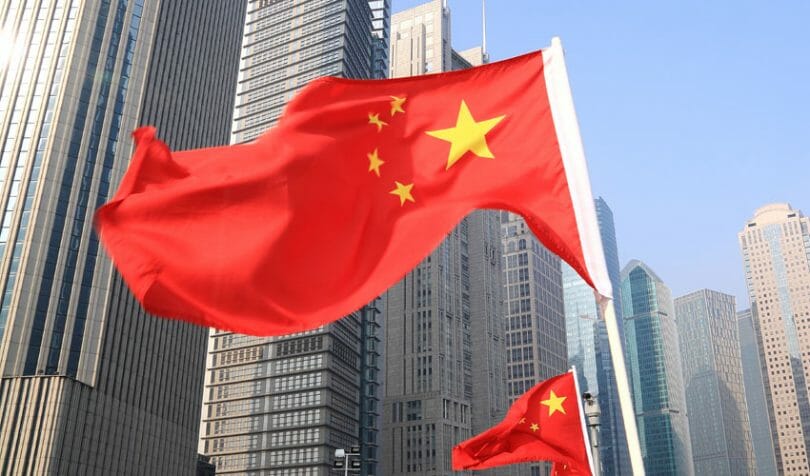German Investment In China Surges Despite Berlin's Warnings

German investment in China has surged significantly in 2024, revealing a stark contrast between the actions of the country’s businesses and the warnings from its government. Despite repeated calls from Chancellor Olaf Scholz’s administration to diversify away from geopolitically sensitive markets like China, German companies, particularly in the automotive sector, continue to deepen their ties with the Asian giant.
Data from the Bundesbank, Germany’s central bank, shows that German direct investment in China reached €7.3 billion in the first half of 2024, already surpassing the €6.5 billion invested throughout the entirety of 2023. In the first quarter of 2024 alone, investments amounted to €2.48 billion, rising sharply to €4.8 billion in the second quarter.
This influx of capital, much of it driven by major car manufacturers, flies in the face of concerns voiced by German and European leaders. Chancellor Scholz and European Commission President Ursula von der Leyen have both urged companies to "de-risk" their operations, warning of the potential geopolitical dangers tied to over-reliance on China. Their calls for diversification echo the lessons learned from Europe’s energy dependence on Russia, which became painfully evident following the Ukraine conflict.
The growing fear is that escalating tensions, particularly in the Taiwan Strait, could spell disaster for German firms heavily invested in China. Such a scenario could disrupt critical supply chains, cutting off Germany from vital materials needed for industries ranging from chemicals to electric vehicle production. Germany's reliance on China for rare earth metals like scandium and yttrium remains a particular concern.
Experts suggest that much of this increased investment in China stems from profits made by German companies already operating there. According to research by the Cologne Institute for Economic Research (IW Köln), more than half of the €19 billion in profits earned by German firms in China last year was reinvested locally. This reflects a growing trend among companies like Volkswagen to adopt a "In China, for China" strategy, aimed at localising production to better serve one of their largest markets.
Friedolin Strack, a China specialist at Germany’s main business lobby, the BDI, noted that companies are reconfiguring their supply chains regionally, particularly in response to disruptions witnessed during the pandemic and the Suez Canal blockage. "There’s a clear effort to mitigate risks by localising production, and China is a focal point for this strategy," he said.
However, not all experts agree this is a prudent course. Jürgen Matthes, a trade expert at IW Köln, warned that such a strategy might backfire on Germany’s domestic economy. "It may protect against geopolitical risks like tensions in the Taiwan Strait, but it could harm Germany's economy and job market in the long run," he said. "We'll likely see a reduction in exports to China, with more products being made in China by Chinese workers instead."
This surge in investment comes just a year after the German government rolled out its first-ever China strategy, which emphasised the need to reduce economic dependency on China. While Chancellor Scholz has clarified that he doesn’t support a complete "decoupling" from China, he has consistently advised companies to avoid putting "all their eggs in one basket." The government’s strategy called for the diversification of supply chains and export markets to safeguard against potential external shocks.
Yet, evidence suggests that many companies, particularly the automotive giants, are not heeding these warnings. Analysts like Danielle Goh from the US-based Rhodium Group expect the strong momentum of German investment in China to persist throughout the year. She pointed to recent major investments, such as Volkswagen’s €2.5 billion expansion in Hefei and BMW’s €2.5 billion investment in its Shenyang production base, as examples of ongoing commitments.
German carmakers, who account for over 50% of the EU's total investment in China, are deepening their ties despite growing concerns. Volkswagen, in particular, has faced significant criticism for its operations in Xinjiang, where the Chinese government is accused of widespread human rights abuses against the Uyghur population.
Privately, some business leaders admit their unease about the industry's increasing dependence on China. "They’ve become too reliant on the profits from China," one source commented. "They find themselves trapped in a kind of golden cage."
World Liberty Seeks Federal Trust Charter
World Liberty Financial, the crypto venture backed by the Trump family, has applied for a US national bank trust charter... Read more
Saudi Banks Tap Overseas Markets
Saudi Arabia’s banks are borrowing from international markets at their fastest pace on record, as lenders try to squar... Read more
Amazon Continues To Cut 16000 Gone
Amazon has announced plans to cut a further 16,000 roles from its corporate workforce, extending the cost and organisati... Read more
The UK May Have A Voice In Ai
Europe’s AI sector has grown accustomed to playing catch-up. Capital has flowed more slowly than in Silicon Valley, va... Read more
Musk Applies Pressure To BT
Britain’s broadband market has spent the past decade locked in a familiar pattern. Incumbents invested heavily in fibr... Read more
Blackrock Sees EMEA Moving Into Private Assets
BlackRock has warned that investors across Europe, the Middle East and Africa are reshaping portfolios in response to wh... Read more

